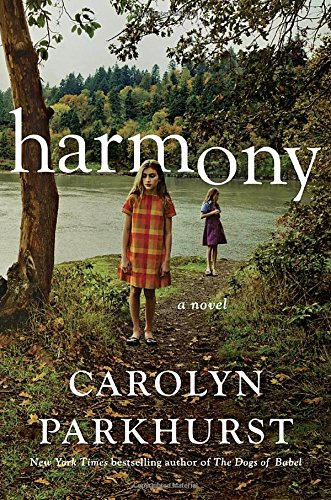How do seemingly intelligent people fall for the purveyors of snake oil? That query lies at the heart of HARMONY.
The novel is told largely through the eyes of Iris, the sibling of an autistic sister, a use of POV that gives the author some space to tell the story from a more naive perspective. She does not understand why her parents, in a quest to find a cure (or a method for coping) with Tilly's anti-social behavior, leave the world behind and follow their autism guru into an isolated wilderness where said guru is completely in charge.
Through flashbacks told by the mother, the lead-up to the relocation is presented. Increasingly desperate, and increasingly whingey, Alexandra tells the reader how alone she was, how desperate for help, but as a reader you might notice how obsessed she is with what the neighbors will think when her daughter acts out in public. Can she not just tell onlookers that her child is autistic? It's not as if the others have never heard of (or met someone with) the condition.
The prologue is a waste of words and you'd do well to skip it, along with the epilogue that reads like an exercise from a creative writing course. The novel itself is filled with tension as Iris and Tilly chafe at the rules of Camp Harmony's regime, while Scott the autism guru comes apart at the seams when his control over everyone's behavior cannot be as absolute as he demands. That alone keeps the pages turning, while skimming over Alexandra's litany of parental torment.
Readers get a sense of impending doom as small things go wrong at Camp Harmony, although the climax feels a trifle forced. Not a bad novel, not a brilliant work of fiction, but entertaining enough for a weekend read.
The review copy was provided by Penguin Random House, for which I thank them.

No comments:
Post a Comment